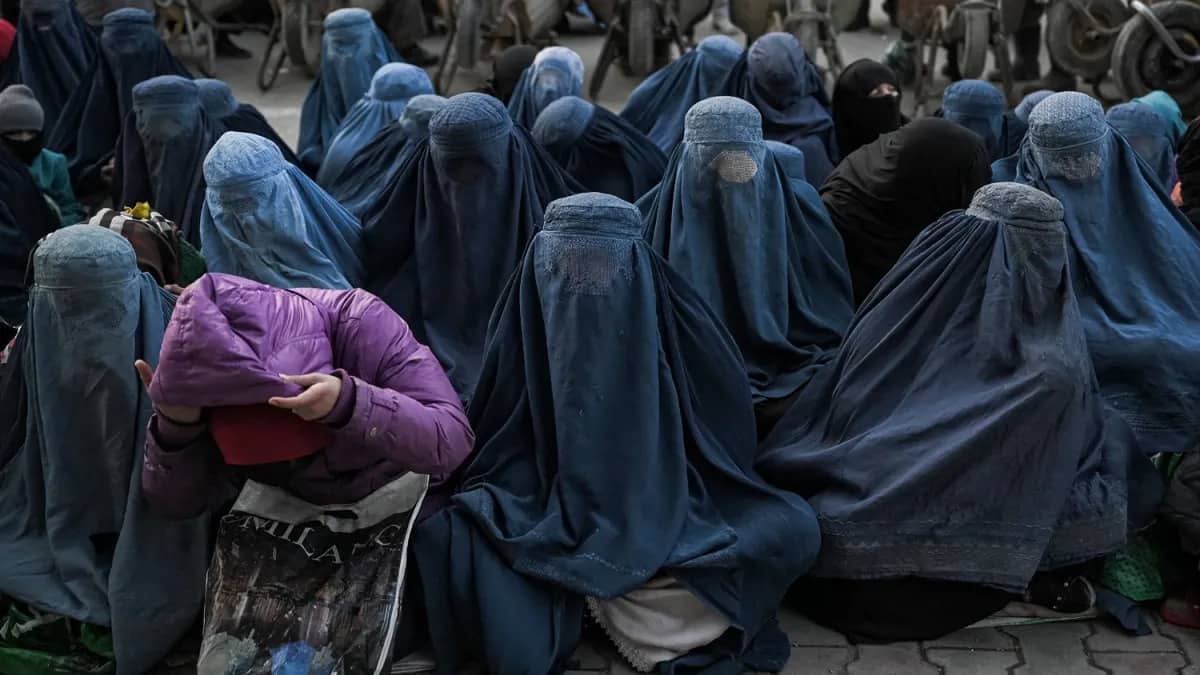Voices Unheard: The Taliban’s War on Afghan Women’s Freedom.
A look into the devastating impact of Taliban rule on Afghan women’s rights, from bans on education and public expression to the resilient defiance of those striving to maintain their dignity and identity.
By Donesha “Dana” Simon


Women’s Rights Under Taliban Rule.
Since the Taliban’s return to power in August 2021, the rights of women in Afghanistan have been systematically dismantled. Women are now banned from most forms of employment, restricted from appearing in public without a male guardian, and face harsh punishments for violating these mandates. These actions represent a devastating regression in women’s rights, effectively erasing two decades of progress and plunging Afghan women into a state of fear and uncertainty.
Source: press.un.org
The Systematic Stripping of Women's Rights Over Time.
Educational opportunities were swiftly eliminated, with girls beyond the sixth grade prohibited from attending school. Afghan women are now denied the right to voice their opinions, choose their clothing, and even access adequate healthcare. They have also lost the ability to pursue careers and contribute economically to their communities, exacerbating their vulnerability. The Taliban’s oppressive laws have stripped women of their basic human dignity, reducing them to a state of near-total subjugation.
Source: hrw.org
Afghan Women Defy Ban on Public Expression.
Under Taliban rule, the strong voices of Afghan women have been forcibly silenced, with the authorities deeming their voices “too intimate” for public spaces. The Taliban has not only banned female singing and public performances but has also prohibited women from reading aloud in public. These harsh measures strike at the heart of Afghanistan’s rich cultural traditions, effectively erasing women’s presence from the public sphere. Yet despite these restrictions, many Afghan women continue to sing in secret, using their voices as a powerful form of resistance. Their defiance goes beyond preserving artistic expression; it is a courageous act of maintaining identity and resilience in the face of overwhelming oppression.
Source: theguardian.com
The Impact on Mental Health Social and Well-Being.
The Taliban’s oppressive rule has severely affected the mental health and social well-being of Afghan women, leading to a troubling rise in suicides. Confined to their homes and stripped of their basic rights, many women face severe depression, anxiety, and profound hopelessness. According to a recent article from The Guardian, the desperation among Afghan women has reached such extremes that increasing numbers are seeking to end their lives, unable to escape the relentless hardship. The psychological impact of living under such harsh conditions is immense, and the lack of mental health support only worsens the crisis.
Source: theguardian.com


Education and Defiance: Afghan Women Fighting for Their Future.
The Taliban’s ban on secondary and higher education for girls is one of the most severe assaults on women’s rights in Afghanistan. Girls beyond the sixth grade are barred from school, erasing decades of educational progress. However, some Afghan women have continued their studies abroad. A group of aspiring female doctors, unable to train under Taliban rule, has relocated to Scotland to pursue their education. Their journey is not only about personal ambition but a powerful act of defiance, showing the importance of international support in providing Afghan women with opportunities to thrive.
Source: apnews.com
Global Response and Obstacles to Action.
The international community has condemned the Taliban’s treatment of women and called for action, using sanctions, diplomatic efforts, and humanitarian aid to pressure the regime. Despite these measures, the impact on the ground has been limited. The Taliban’s violations of women’s rights based on gender amount to gender persecution, which qualifies as a crime against humanity. Although international organizations and NGOs strive to support Afghan women, their efforts are often hindered by the Taliban’s control and the challenging security situation. The stark contrast between international promises and the grim reality for Afghan women underscores an urgent need for more decisive and coordinated action.
Source: un.org


“The struggle for human rights and gender equality is a journey, not a destination. Afghan women’s voices must be heard and valued.”
– Shaharzad Akbar – The former chairwoman of the Afghanistan Independent Human Rights Commission
About the Author

Dana assists with developing and implementing WVN’s social media strategy. She has a BA in Mass Communication from Cal State LA, focusing on Advertising & PR. Dana is passionate about content creation and community engagement. She volunteers with organizations supporting women of color, arts education, and formerly incarcerated individuals.
Connect with Dana:
Stay Informed with our Newsletter.
Receive exclusive invitations to our programs; free films to watch from free film collection Voices For Change; news about gender equality around the world; and access to our partners’ programs.



